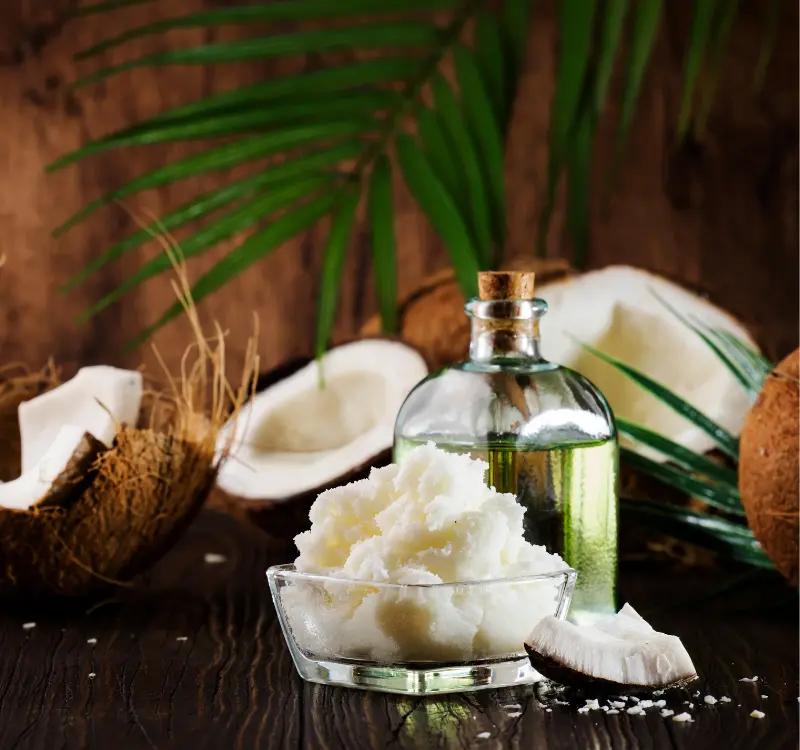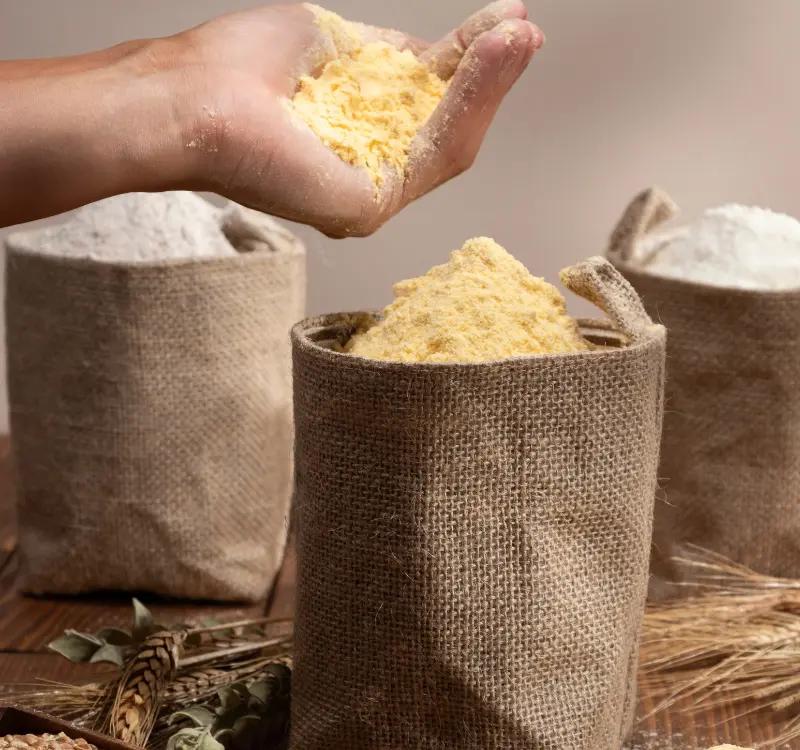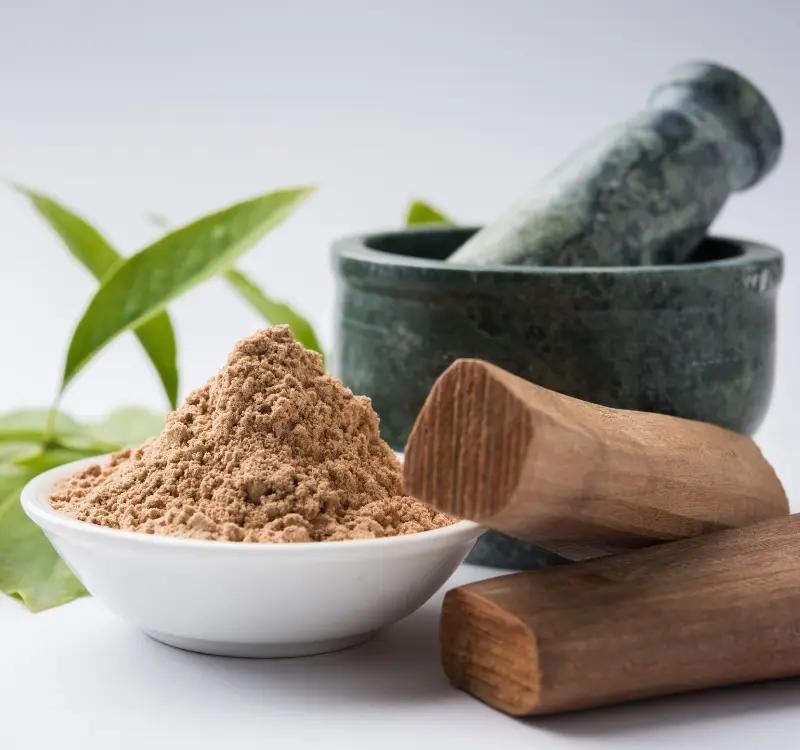Is Saffron Good for Your Skin? How to Use Saffron for Skin Whitening?
Jul 01, 2024

Saffron, often called "the golden spice," is derived from the flower of Crocus sativus. Known for its vibrant colour and distinct aroma, saffron has been used for centuries in cooking, medicine, and skincare. When it comes to skincare, saffron is popular for its potential skin-whitening properties. Using saffron for face treatments can help lighten the skin, reduce dark spots, and give a natural glow.
Table of Contents:
- Is Saffron Good for Skin? What Ayurveda Says?
- Key Benefits of Saffron for Skin
- How to Use Saffron for Skin?
- Is There Any Side Effect of Using Saffron for Skin?
- Conclusion
- FAQs
Is Saffron Good for Skin? What Ayurveda Says?
In Ayurveda, saffron is not just used in cooking but also for beauty and skincare. It plays a big role in many Ayurvedic rituals and treatments to promote wellness and radiance. Saffron is often added to skincare products, showing its important place in Ayurveda for beautification and rejuvenation.
Key Benefits of Saffron for Skin
1. Saffron for Skin Whitening and Brightening
Saffron helps lighten and brighten the skin by reducing pigmentation and dark spots. When applied to the skin, it works to diminish the appearance of dark patches and uneven skin tone caused by sun exposure or ageing. This promotes a more even complexion and increases natural glow. Regular use of saffron in your skincare routine can result in noticeably brighter and more radiant skin.
2. Anti-Aging Properties
Rich in antioxidants, saffron helps fight free radicals, which are harmful molecules that can cause premature ageing. Free radicals can damage skin cells, leading to fine lines, wrinkles, and dullness. Its antioxidants neutralise these free radicals, protecting your skin from their harmful effects. This helps reduce the appearance of fine lines and wrinkles, making the skin look smoother and younger. Additionally, saffron improves overall skin texture, giving it a firmer and more youthful appearance.
3. Improves Skin Texture
Saffron helps refine skin texture, making it smoother and more radiant. It has natural exfoliating properties that help in removing dead skin cells from the surface. By gently sloughing off these dead cells, saffron reveals fresher, healthier skin underneath. This process not only smooths the skin but also enhances its natural glow, leaving it looking revitalised and more vibrant.
4. Hydrates and Moisturizes
Saffron has natural hydrating properties that keep the skin moisturised and supple. It helps to lock in moisture, which is particularly beneficial for dry skin. When the skin is well-hydrated, it looks plumper and feels softer. Using saffron in your skincare routine can help maintain a healthy moisture balance, preventing dryness and keeping the skin looking fresh and youthful.
5. Reduces Acne and Blemishes
Saffron has anti-bacterial and anti-inflammatory properties that help in treating acne and reducing blemishes. It soothes irritated skin, calming redness and swelling associated with acne. By reducing inflammation and fighting bacteria, saffron helps clear up existing pimples and prevents future breakouts. This leads to a clearer, healthier complexion with fewer blemishes.
6. Enhances Skin Tone
Regular use of saffron can enhance your natural skin tone, giving you a more youthful and vibrant appearance. Saffron works by promoting even skin pigmentation, which helps in reducing dullness and patchiness. Consistent application can result in a more uniform and radiant skin tone, making your complexion look brighter and more vibrant.
7. Saffron Uses for Skin Healing Properties
Saffron helps in healing wounds and scars due to its anti-inflammatory properties. It helps reduce redness and swelling, which promotes faster healing of the skin. By calming inflammation, saffron supports the natural repair processes of the skin, helping wounds and scars to heal more efficiently. This makes it beneficial for soothing and repairing irritated or damaged skin, leading to a healthier and more even complexion.
8. Other Health Benefits
Rich in antioxidants, saffron can help regulate serotonin levels, which play a crucial role in maintaining a positive mood and reducing symptoms of depression. Studies have shown that saffron's active compounds, such as crocin and safranal, can increase libido and improve sexual function, making it a natural and effective option for enhancing overall well-being.
How to Use Saffron for Skin?
You can use saffron in two ways: by including it in your diet and by applying it externally to the skin.
1. Including Saffron in Your Diet
To use saffron for skin benefits, you can add it to your diet. This helps improve your skin from the inside out. Now, This is how to eat saffron for skin whitening.? To do this, soak a few strands of saffron in warm milk or water for about 10 minutes. Drink this mixture once daily. The best time to consume it is in the morning or before bedtime. This method helps in skin whitening and gives your skin a natural glow.
2. External Uses for Skin Whitening and Enhancement
For external use, saffron can be applied directly to the skin. Here are two simple methods:
Saffron Face Mask
Soak a few saffron strands in milk until the milk turns yellow. Mix this milk with sandalwood powder to make a paste. Apply the paste to your face, leave it on for 15-20 minutes, then rinse off. This helps in skin whitening and adds a radiant glow.
Saffron Toner
Soak a few saffron strands in rose water for a few hours. Use this saffron-infused rose water as a toner. Apply it to your face with a cotton pad daily. This helps brighten the skin and reduce dark spots.
Saffron Oil
To use saffron oil for skin whitening, apply a few drops of it to clean, dry skin and gently massage in circular motions. Leave it on overnight or for at least 30 minutes before washing off. For best results, use saffron oil daily to lighten dark spots and achieve a brighter complexion.
Is There Any Side Effect of Using Saffron for Skin?
While saffron is generally safe for most people, there are a few potential side effects to be aware of when using it for skin care:
Allergic Reactions: Some individuals may experience allergic reactions to saffron, such as redness, itching, or rash. It is important to do a patch test before applying saffron to larger areas of the skin.
Skin Sensitivity: Saffron can make the skin more sensitive, especially to sunlight. Using saffron-based products might increase the risk of sunburn. It is advisable to use sunscreen if you are using saffron on your skin and going outside.
Overuse Effects: Using too much saffron can lead to yellow discoloration of the skin. It is best to use saffron in moderation to avoid staining.
Interaction with Medications: If you are taking certain medications, particularly those for blood pressure or blood thinners, saffron might interact with them. Always consult with your doctor before using saffron into your skincare routine if you are on medication.
Conclusion
Saffron is highly valued in Ayurveda for its beautifying properties. It helps lighten and brighten the skin, reduce dark spots, and give a natural glow. By including saffron in your diet and applying it externally, you can achieve a clearer and more radiant complexion. Whether consumed in warm milk or applied as a face mask or toner, saffron enhances skin tone, reduces acne, and promotes overall skin health. Its rich antioxidant and anti-inflammatory properties support skin healing and rejuvenation, making saffron an excellent addition to your skincare routine. Also, if you are using saffron, it is important to know all potential side effects.
Frequently Asked Questions
Saffron may not work immediately. Regular use over a few weeks is needed to see noticeable results in skin tone and texture.
Yes, saffron helps remove tan by lightening and brightening the skin.
Soak a few strands of saffron in warm milk and drink it daily. This is how to eat saffron for skin whitening.
For best results, use saffron both internally and externally. Drink saffron milk and apply saffron-infused masks or creams on your skin.
Yes, you can mix saffron in your face cream to enhance its skin-brightening and moisturising effects.
Yes, you can soak saffron overnight in milk or water to release its beneficial properties.
To make saffron face cream at home, mix saffron strands with milk and add it to your regular face cream. Blend well and use it daily.
It typically takes a few weeks of daily consumption of saffron milk to see noticeable skin whitening results. However, consistency is key, and individual results may vary depending on skin type and overall health.
Drinking saffron milk daily can improve skin tone, boost immunity, and provide overall health benefits.
Yes, you can use saffron on your face daily. It helps brighten your skin and reduce dark spots.














